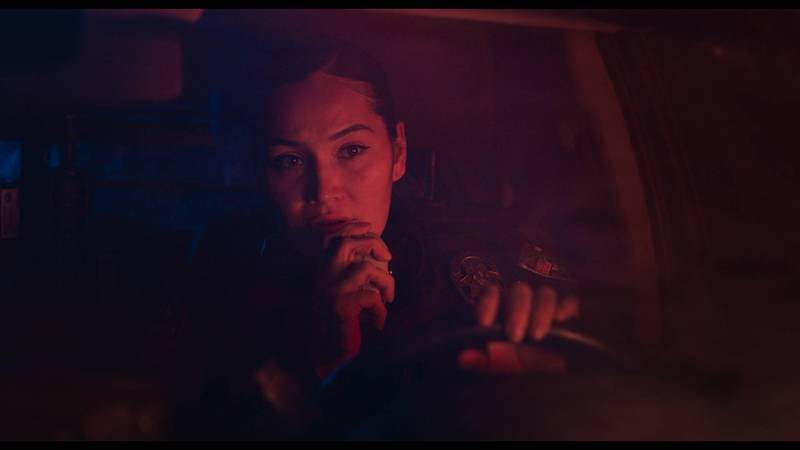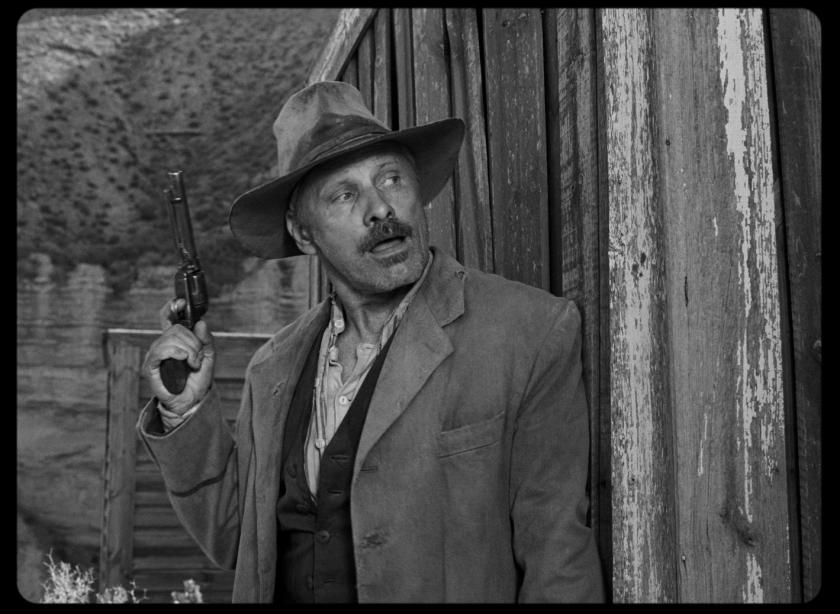It's been a decade since Lisandro Alonso’s last film, Jauja, which signalled the Argentine's first collaboration with professional actors, notably a magnificent Viggo Mortensen. The pair reprise their collaboration in Eureka, in the first of three stories tenuously connected by dashes of mysticism and the director’s customary interest in the fate of indigenous people.
I’m a great admirer of this director, one of the brightest lights of the Argentine renaissance of the early Noughties, and a leading exponent of slow cinema. Alonso's films – from La libertad and Los muertos, via Liverpool to Jauja – have always been singular, bold and challenging, often revelatory with regards the people before his lens, the demands of viewing invariably worth the effort.
His latest, however, leaves me more irritated than intrigued, bored rather than hanging in anticipation. The meditative quality and sense of mystery are familiar and welcome; but this time his narrative opaqueness, and a stubborn refusal just to get on with it, impede one’s immersion.
Mortensen is Murphy, a gunman in the wildest of Wests, dumped by an irascible nun who’s giving him a lift in her wagon to walk the final, sun-scorched miles into a frontier town that’s so down-at-heel and debauched that it makes Deadwood look like a holiday camp. While Murphy may lack the cheroot and outward assurance of Clint Eastward’s Man with No Name, he’s nevertheless a deadly stranger to town, with a very personal mission: to find his daughter, who has supposedly been kidnapped by an outlaw. Before long, the shooting starts.
 But this is nothing like a spaghetti western. Shot in academy ratio and black and white, there’s something weird and disconnected about it, as with all of Alonso’s films. An Indian opens the film, portentously chanting on a mountain top, then never to appear again; and Chiara Mastroianni faces off against Mortensen in a saloon, speaking in English but with words that would sit well in the most pretentious Godard movie.
But this is nothing like a spaghetti western. Shot in academy ratio and black and white, there’s something weird and disconnected about it, as with all of Alonso’s films. An Indian opens the film, portentously chanting on a mountain top, then never to appear again; and Chiara Mastroianni faces off against Mortensen in a saloon, speaking in English but with words that would sit well in the most pretentious Godard movie.
At this point, Mortensen shoulders the responsibility to hold our interest, which he does with customary ease; and when it materialises, the dynamic between father and daughter is as potentially rich as that in Jauja (with that film’s Viilbjørk Malling Agger again standing up against Mortensen as her dad). But just as the drama is warming up, it’s over, Alonso revealing a very surprising con trick (which I won’t spoil) that pulls us out of this narrative and into another. For a moment, there’s the lip-smacking promise of a spiritual meeting between Alonso and David Lynch, but that quickly evaporates along with Mortensen’s engaging and, as it turns out, essential presence. We’re now on a native American reservation in contemporary South Dakota, on a wider ratio and in colour. A police officer, Alaina (Alaina Clifford, pictured above), patrols the reservation, saving the sad, self-destructive inhabitants from themselves – usually by arresting them, with a rather disconcerting lack of compassion.
We’re now on a native American reservation in contemporary South Dakota, on a wider ratio and in colour. A police officer, Alaina (Alaina Clifford, pictured above), patrols the reservation, saving the sad, self-destructive inhabitants from themselves – usually by arresting them, with a rather disconcerting lack of compassion.
More sympathetic, and intriguing, is Alaina’s niece Sadie (Sadie Lapointe), a basketball coach who cares deeply for her kids, but decides she’s had enough of the doomed life on the reservation and turns to her grandfather for help – towards what at first seems like assisted suicide, but may actually be something mystical and transformative. And this "flight" allows Alonso to segue into his third story, set in the Brazilian Amazon in the 1970s, where he follows more indigenous Indians, this time being exploited by gold prospectors.
Alonso usually extracts value from plunging the audience into the routine monotony of his characters; here, he’s lacking the focus and sinister threat that keeps the approach moving. The dialogue is horribly stilted (Alonso co-wrote with Argentinian authors Martin Camaño and Fabian Casas), as each, over-extended scene becomes an air-sucking longueur.
It does, though, remain a moderately fascinating curio. And it’s beautifully shot by DPs Timo Salminen (a Kaurismäki regular, who also shot Jauja) and Mauro Herce. One image, of a dispirited Alaina staring out of a window into night-time snow, speaks of loneliness, melancholy and alienation with an economy the rest of the film sorely lacks.















Add comment